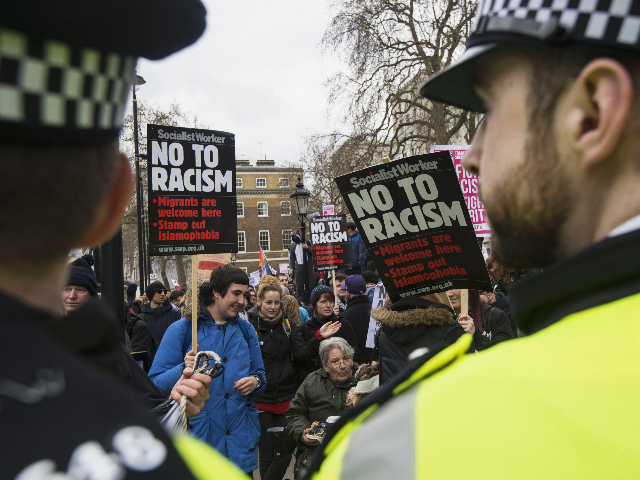Political correctness and fear of accusations of racism at the local level is preventing Islamic extremism being reported, a British government advisor has admitted.
As has been the case with the scourges of grooming rape gangs and modern day slavery, Islamic extremism is being pushed under the rug by local councils in the UK out of concern of being branded as racist, the government’s independent adviser for social cohesion Dame Sara Khan has said.
Prevent, the government’s anti-extremism programme, Khan said, is being hampered by local authorities bending to “political correctness”.
“They felt that somehow they were going to be offending Muslims, somehow it was being racist and Islamaphobic,” Dame Sara told the BBC’s Political Thinking podcast.
“I thought, you’re not doing a service to Muslims in this country if you think that. Not talking about the threat of Islamist extremism is totally unacceptable.
“You’re actually discriminating against Muslims because you’re more concerned about political correctness and the fear of being labelled racist [than] actually helping Muslims,” she added.
MI5: Number of Far Right Terror Cases ‘Absolutely Dwarfed by the Number of Islamist Cases’ https://t.co/eikJsWpwjg
— Breitbart London (@BreitbartLondon) March 21, 2019
The Prevent programme, which seeks to stop the radicalisation of would be extremists in Britain, has previously been accused of placing a disproportionate emphasis on the far-right rather than the threat posed by radical Islamists.
Despite Islamic extremists accounting for 90 per cent of those on security service watch lists, the number of far-right suspects referred to prevent (22 per cent) nearly matched the number of Islamists referred to the programme (24 per cent) according to a report from the Henry Jackson Society last year.
Khan said that in her previous role as the government’s first counterextremism commissioner, she would often meet with local councillors who were “very comfortable” focusing on the far-right, while at the same time “pushing back against the Islamist threat in the area, and how it’s radicalising Muslims, they just could not talk about it”.
She went on to argue that the government’s approach should be “ideologically blind,” explaining: “There’s far right, Islamist, Sikh, there’s Hindu nationalism, there’s all different types of extremism — there’s far left, for example.
“You’ve got to deal with all of those types of problems, and only trying to focus on one at the expense of others is totally counterproductive.”
Disproportionate Focus on ‘Far Right’ Stopping Anti-Terror Programmes From Preventing Islamist Extremism: Report https://t.co/PhuSai6Xmx
— Breitbart London (@BreitbartLondon) October 22, 2021
The issues raised by Khan mirror previous failings of local officials and police in countering largely Pakistani grooming gangs in the North and Midlands of England, with politically correct fears enabling child rapists to victimise thousands of women and girls.
A 2020 report from the Mayor of Greater Manchester, for example, found that police officers intentionally overlooked “Asian” grooming gang sex crimes out of fear of appearing racist.
A similar report from Rotherham found that police were reluctant to crack down on grooming gangs for fear of sparking “racial tensions”.
Home Secretary Priti Patel has also accused officials in Leicester of overlooking fast-fashion sweatshops using modern slavery tactics over “cultural sensitivities“, enabling firms to exploit illegal migrant workers with little room for recourse.
Follow Kurt Zindulka on Twitter here @KurtZindulka

COMMENTS
Please let us know if you're having issues with commenting.